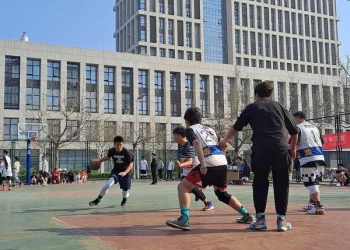What are the requirements for students to successfully apply for postgraduate study in Japan?
You must be familiar with the application conditions and procedures.
The following is here to tell you about the conditions and procedures for Japanese graduate students to study abroad.
1. Applicants for Japan Graduate School must be graduates with a four-year program or above to be eligible for graduate school registration. Graduates are required to hold valid diplomas and degree certificates.
It is very unlikely that individual junior college students, self-examinees and students without a degree certificate can directly apply for good national and public universities in Japan.
However, these students can first go to a language school in Japan and then apply for graduate school, which has a high chance of success.
Note: Most graduate schools require a bachelor’s degree, but some do not.
Some students have double junior college degrees, in this case, the cumulative number of years of study has reached four years, but still do not have the Japanese graduate school examination qualification.
2. The minimum requirement for students to apply for a master’s degree in Japan is Japanese Level 2 or above.
But for liberal arts majors, Japanese is required to reach Level 1.
For students majoring in science, the requirements are slightly lower, but they also need to achieve level 2 or above.
Although theoretically graduate students can not do language scores, but experience, if there is no Japanese students, in the domestic direct application of students, the success rate is almost no.
3, into the Japanese college score requirements of the Japanese college is now the average score of the requirements are not too high, but we must ensure that there is no fail in the subject, the Japanese look very heavy on the qualified points.
But the best universities still have to keep the average score above 75 because of competition.
And it’s better to have a trend higher and higher, if it’s lower and lower, it’s not so good.
4. Toefl scores are widely recognized. Usually, students who want to be admitted to a good school require a TOEFL score of 80 or more.
1. Preparation of application qualifications, including: Japanese scores, English scores, professional knowledge and research direction, research proposal, GPA.
2. Contact the professor, propose the intention of postgraduate application, submit various grades and research plans, some students may need to interview, and finally get Neino.
3. Make a vow. After Neino, the professor will ask the student to contact the teacher of the student’s course to prepare the vow materials and pay the elective examination fee.
4. Application for Retention Certificate of Eligibility.
5. Apply for the visa and go to the embassy or consulate to apply for the visa after getting the original of the stay qualification.
6. Go to Japan. Just go to Japan before the school report.
1, the language school to Japan – to take the monks exam advantages let’s not say, but to the language school also need to face the problem.
If you are going to Japan with no basic knowledge of Japanese, you need to have at least N2 level for science and engineering students, and N1 level for liberal arts and art students to meet the requirements for college admission.
It will take about one year to learn N2 from a basic level. Therefore, it is not recommended to go to Japan to study Japanese from a junior college. It will save time, money and effort to learn Japanese well in China.
2, SGU English program domestic direct application — no written examination, direct friar entrance advantages are not to say a lot, that is, high conditions, difficult to apply, serious internal examination.
More suitable for students with European and American experience to apply.
3. Applying for postgraduates — taking the friar exam is the same as getting a two-year visa. Studying in a language school is completely different from studying around a professor.
First of all, poor information is not equal. When preparing for the exam in language school, there is another problem, which is whether to review by yourself or to report to a private school. If you report to a private school, it is also more expensive.




















